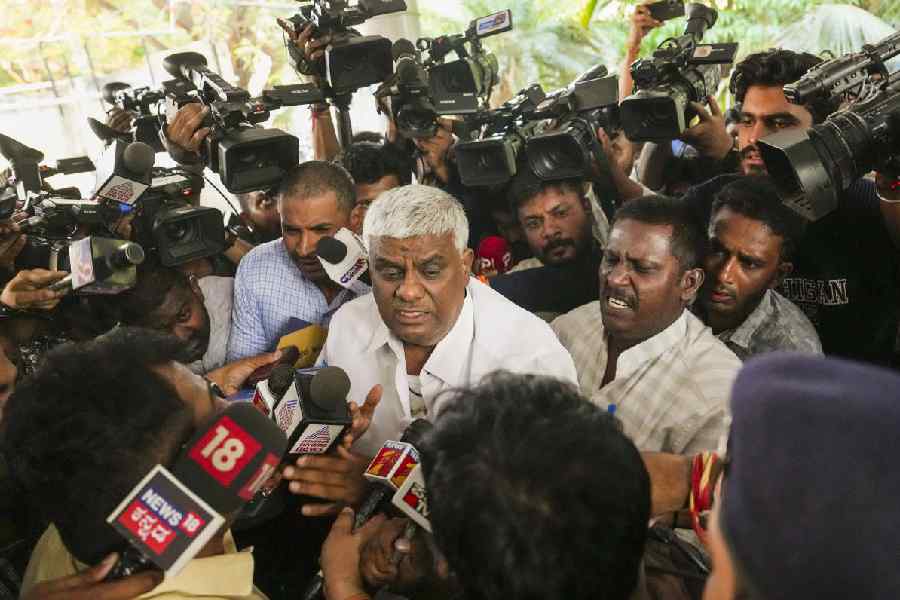Cursed thinking
Sir — Rare diamonds are a source of intrigue. The Koh-i-Noor, for instance, is believed to be cursed — from the Khiljis to the Mughals, each dynasty purportedly met its demise after possessing the gemstone. So it is unsurprising that the news of the cancer diagnosis of its current owner, King Charles III of Britain, has given new life to the alleged curse, with some demanding that the diamond be returned to India. While it cannot be claimed that doing so would break the curse, surely an effective spell to counter the curse of superstition on humanity is yet to be conjured.
Surojit Maity, Howrah
Vital measure
Sir — The Lok Sabha recently passed the public examinations (prevention of unfair means) bill, 2024 in a bid to prevent malpractices and irregularities in government recruitment examinations and competitive entrance tests. This is a welcome development. Adoption of unfair means during examinations has become the norm with over 41 instances of paper leaks recorded from 15 states over the past five years. This has led to the cancellation of examinations and significantly disrupted the recruitment process for government jobs. It is thus heartening that the bill envisions harsher punishments for such offences.
A deeper probe into the cheating menace would turn the spotlight on the widespread unemployment problem. The desperation to secure a government job makes candidates vulnerable to exploitation. Periodic hiring and the timely publication of examination results should be ensured to restore people’s faith in the recruitment process.
Khokan Das, Calcutta
Sir — States should enact similar legislations like the Centre’s public examinations (prevention of unfair means) bill in order to stop applicants from using illegal means to obtain employment. The bill includes all computerised national recruitment examinations and imposes a fine of one crore rupees and a jail term of up to 10 years on the offenders.
Such strict provisions would insulate the recruitment system from fraudsters. Further, the introduction of the bill has been timely given the increasing complaints of fraud in several state-level employment examinations. The bill will surely instil confidence among students who have been at the receiving end of job scams.
Arka Goswami, West Burdwan
Deep rot
Sir — In “Campus collapse” (Feb 5), Sukanta Chaudhuri critically analyses the deplorable condition of higher education in West Bengal. Several public institutions in the state — Jadavpur University is an example — have been suffering owing to the continual squabble between the state government and the governor. Chaudhuri’s reminder towards the end of the article, that universities “are places for learning and research, not for playing politics”, seems to be a reprimand of both authorities and students. The state government and the gubernatorial office should iron out their differences in order to safeguard students’ prospects.
Sanjit Ghatak, South 24 Parganas
Depleted value
Sir — There has been an alarming decline in the nutritional values of staples such as rice and wheat. The editorial, “Unwholesome” (Feb 5), elucidates the serious implications of this on the population’s health. Although the Green Revolution brought about an abundance of food, the overexploitation of resources and the overemphasis on productivity resulted in the loss of essential nutrients from crops. Multi-cropping could be the key to checking this loss.
Sukhendu Bhattacharjee, Hooghly
Loss of face
Sir — The decision of the Election Commission of India to award control of the Nationalist Congress Party to Ajit Pawar was based on legislative majority (“EC hands NCP reins to Pawar nephew”, Feb 7). The party has 81 legislators, most of whom supported Ajit Pawar. Like Uddhav Thackeray, who lost the Shiv Sena to the Eknath Shinde-led faction, Sharad Pawar has lost relevance in his own party. Regional parties should work on strengthening inner-party democracy.
Jayanta Datta, Hooghly
Sir — In a major setback to the veteran politician, Sharad Pawar, the ECI
held that the faction led by his nephew, Ajit Pawar, was the real NCP and was entitled to use the party name and symbol. A similar fate had befallen Uddhav Thackeray. The situation is such that the landlord seems to have been kicked out of the house by the tenants.
Jahangir Ali, Mumbai
Ace bowler
Sir — The Indian pacer, Jasprit Bumrah, has risen to the top of the International Cricket Council’s Test bowling rankings, becoming the first Indian fast bowler to achieve the feat. This is commendable. Bumrah’s haul of nine wickets against England in the second Test in Vizag brought him this honour.
Md. Salman, Mumbai










